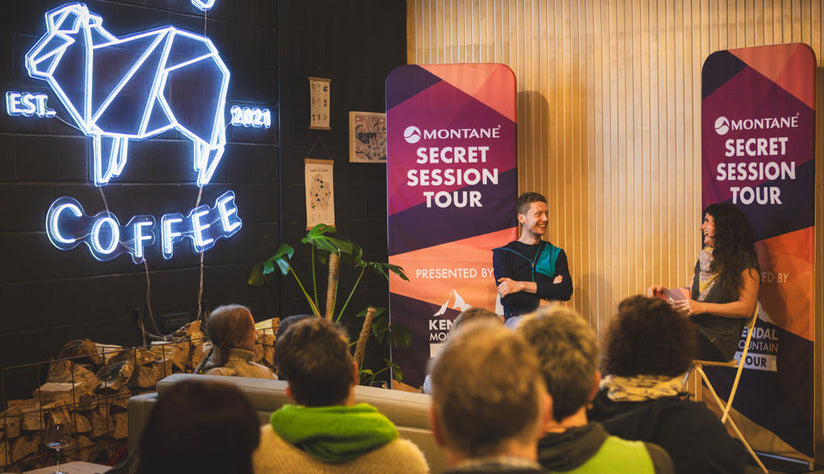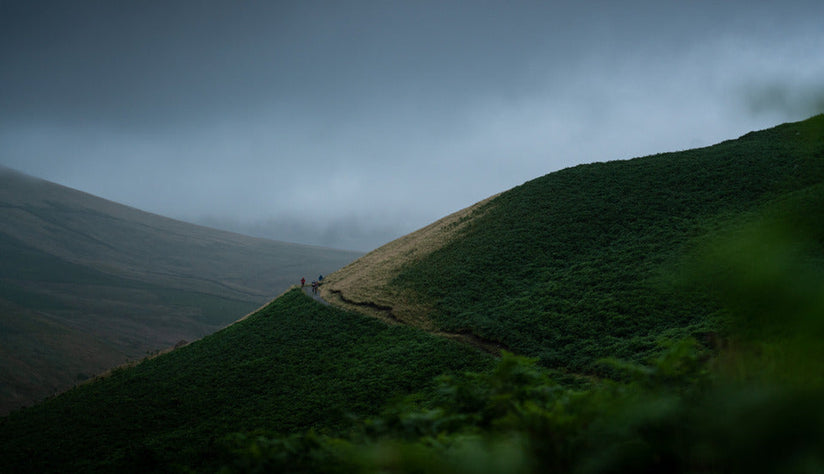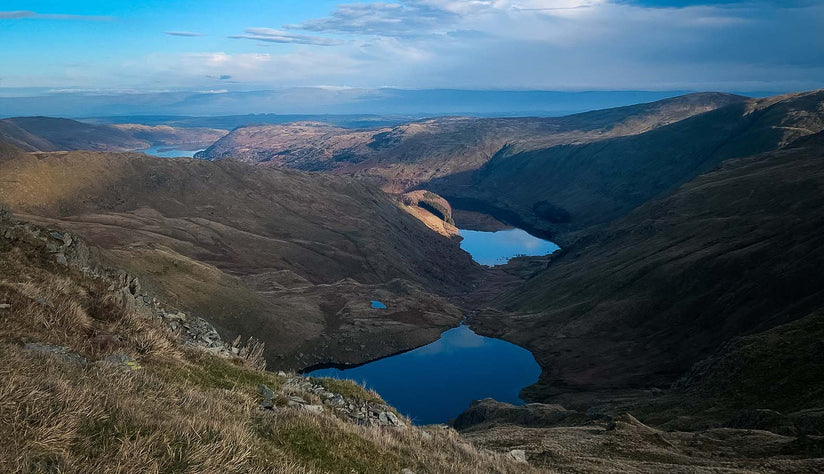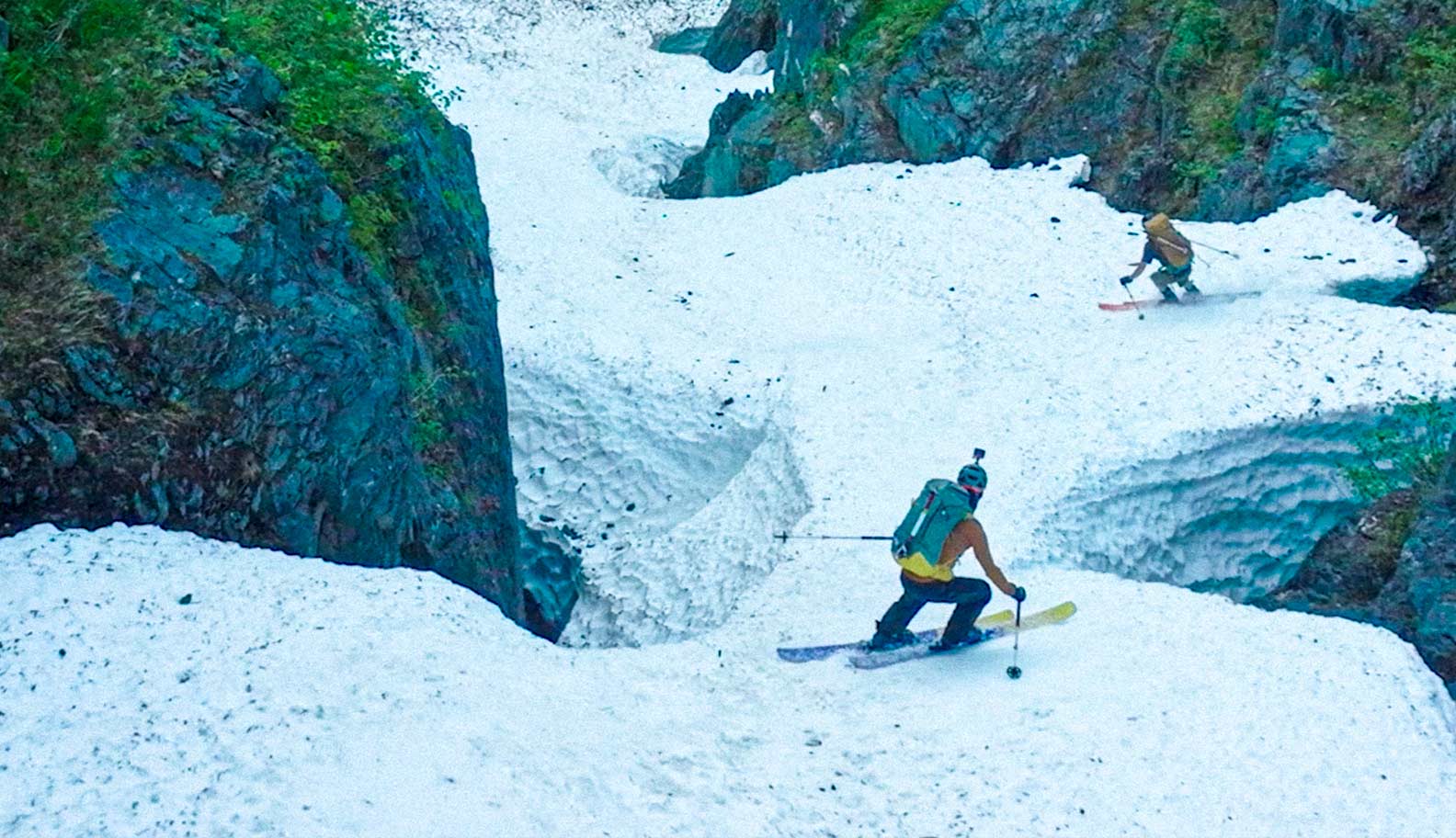Along with my friends Will Tucker and Jon Moy, I stand in awe at the foot of the magnificent peaks that lie ahead for us. Our goal is to be the first to climb and ski down the tallest mountain on each of the seven continents – the Seven Summits. It’s a feat that has never been accomplished before. But The Last Ride is a journey that will go far beyond being the first, the fastest, or the highest. It will go beyond pushing our limits. Instead, it will ask what it means to be the last.
These mountains, once crowned with glaciers, are now rapidly losing their snow and ice due to climate change. Kilimanjaro’s ice fields will vanish within a decade, and Puncak Jaya’s glaciers will be gone by next year. Soon, there will be nothing to ski on. This project is destined to become a journey of discovery and activism.
As a former GB Freeskier and carpenter in the UK film and television industry, I found my connection to environmentalism through the beauty of the Alps. Will Tucker is an ex-ski racer, coach, and UK canoe hire operator. He shares my passion for using our love for skiing to make a positive impact on the world. Jon Moy, an award-winning director and cinematographer, adds a creative touch to our journey, documenting our experiences and spreading our message.
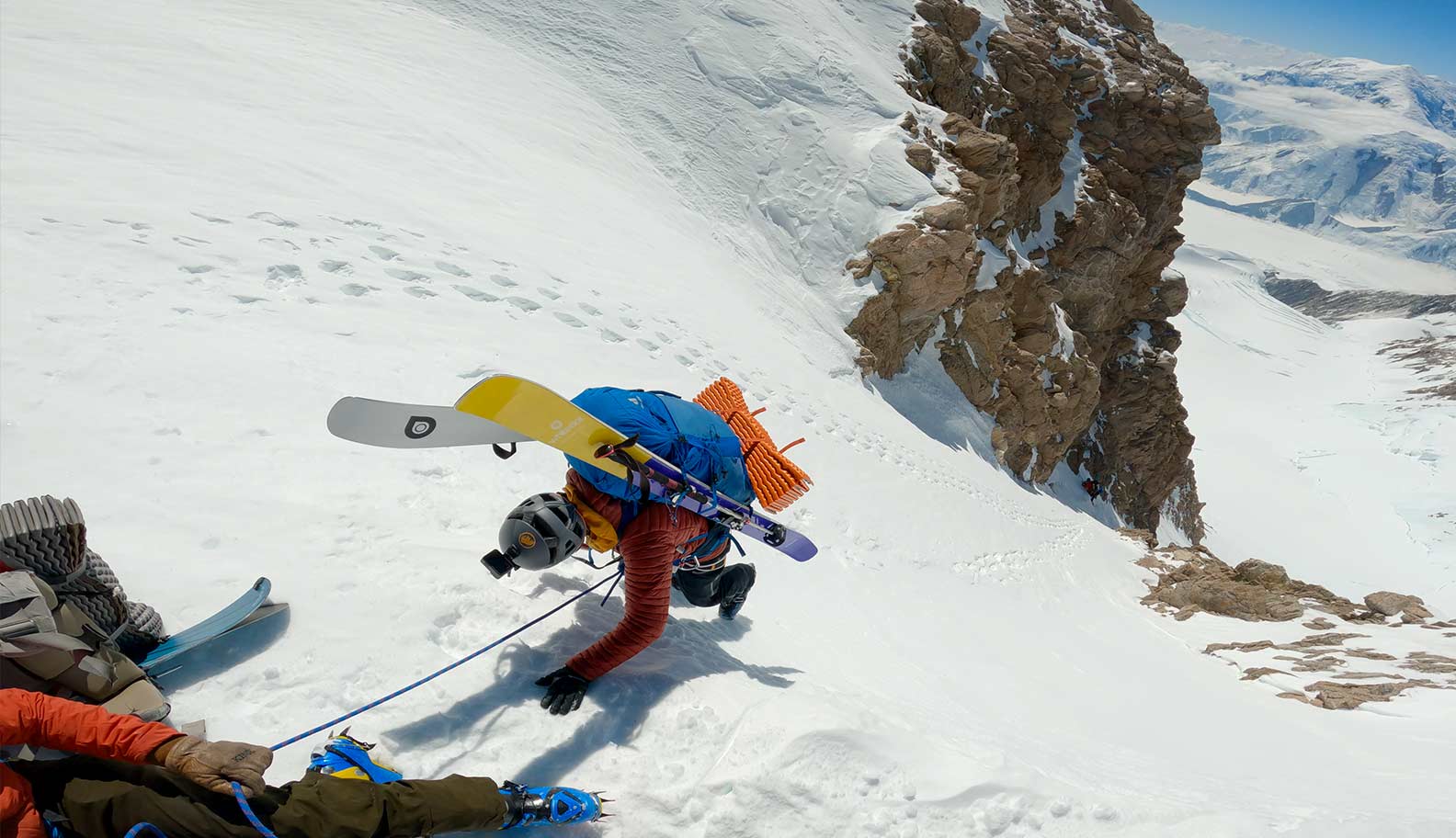
At first this was about athletes climbing and skiing mountains. But it has become a mission – raising awareness about the climate crisis, and its impact on the environment and people’s lives. And, more than that, it has become about Indigenous people, their knowledge, and what we might learn from them to build a more sustainable future. Our dedication to reducing our carbon footprint has been unwavering since the project’s inception. We travel the shortest distances, use alternative modes of transport, and work with local guides and small production crews to minimise our impact. Despite our efforts, we know that our project will still emit carbon into the atmosphere. To offset this, we have partnered with organisations like The Kilimanjaro Project and The Eden Project to plant trees and fund renewable energy projects in different regions. Through these initiatives, we aim to become six times carbon negative, whilst spreading awareness of climate issues in each episode of our documentary.
Looking at historic images of Puncak Jaya from the early 2000s through to the present day, a sense of unease settles over me. The glaciers are disappearing at an alarming rate, unlike anything we could have imagined. Glaciologists confirm our fears – the mountain will be ice free by the end of this year. The last piece of equatorial ice in the southern hemisphere, the last piece of glacier in Oceania, will soon be gone. My heart sinks as I realise what this means. The sport that has been my passion, my way of life, is being taken away right before my eyes. But this isn’t just about skiing anymore. We are witnessing the disappearance of something profound – a piece of nature, a part of our world, slipping away. And it’s about far more than just us. The people who live here are losing more than we can even imagine. Indigenous communities see this white-topped mountain as their spirit, an integral part of their culture and identity. With the glacier vanishing, they will lose a connection to their past, a key element of their heritage.
The urgency of the situation hits me hard. I know we can’t stay silent any longer. This is the moment when The Last Ride takes a different form. The thought of losing the last piece of ice in Oceania fuels our determination to act. We need to tell the world what we’ve seen, and show them the reality of climate change on the ground. We need to inspire action. And our mission has become more poignant as we realise that we will most likely be the last people to ski the Seven Summits. These mountains are the canaries in the coal mine for catastrophic climate change.

As we continue with our meticulous planning, the weight of responsibility hangs over us. The challenges of organising an expedition are now accompanied by a sense of duty – a need to use our platform for something greater. We need to document the disappearing glaciers and to give a voice to the local communities affected. The excitement of ski mountaineering remains, but it is now intertwined with a profound purpose. We are committed to making a difference. Our journey will be more than just skiing down mountains; it will be a call to action, a plea for change. With the film crew documenting every step of the way, we hope to reach hearts and minds across the globe. We want to show that climate change is not just a distant threat. It’s happening now, right in front of us.
Each mountain teaches us valuable lessons. In Russia, we learn about climate change from renowned scientists like Professor Olga Solomina. Tanzania shows us the critical climate situation and its impact on local communities. And in Alaska we witness Arctic amplification and the alarming rate of ice mass loss. As skiers, we initially saw climate change as a threat to our passion, but the true impact goes far beyond that.
The realisation hits us like a ton of bricks when we set our sights on climbing and skiing Denali, the tallest mountain in North America. Our encounter with Estelle Thompson, an Indigenous leader and Yup’ik traditional medicine practitioner, changes everything. Sitting with Estelle and other members of her village, we heard heart-wrenching stories of how countless villages are disappearing – sinking into the thawing permafrost, being washed away by storms, or forcibly relocated due to mining projects. These villages go back thousands of years, with deep connections to the land and ancestral burial grounds that gave their people their identity. The devastation was overwhelming. We couldn’t fathom the pain and loss they were experiencing. Listening to Estelle, who was so deeply in tune with the land and understood the symbiotic relationship between humans and nature, made me realise how much we need Indigenous cultures.
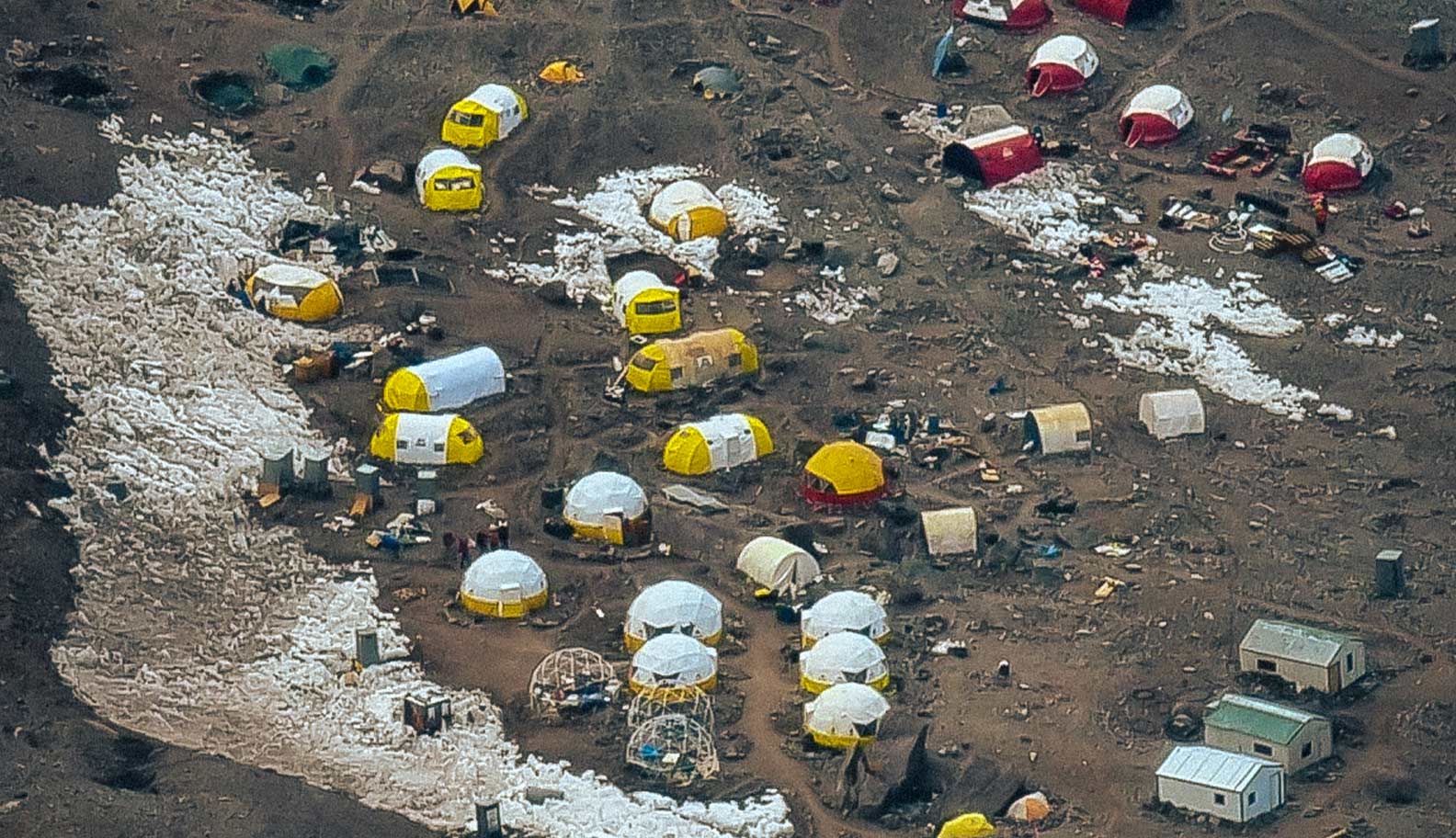
In the Western world, we’ve harnessed nature’s powers for our own advancements, but we’ve for - gotten the fundamental principle of giving back and living in harmony with nature. The wisdom and knowledge of Indigenous cultures hold valu - able lessons for us all. It’s a humbling moment – the realisation that we, as people from the Western world, have a lot to learn and relearn. We’ve ridiculed, stolen from, and oppressed Indigenous cultures for centuries, and now we find ourselves in a dire situation where we need their guidance and wisdom the most. The people who have contributed the least to the environmental mess are the ones paying the highest price.
In The Last Ride Project, we’ve set out to relearn the art of living in harmony with the planet from seven different cultures around the world. We aim to showcase solutions to the complex issues we face and demonstrate what ordinary people can do to tackle the seemingly insurmountable task of mitigating the climate crisis. Since the start of this journey, the project has undergone a profound transformation. The impact of our project has gone beyond the mountains we climb and the films we create.
Our journey has become a symbol of hope, determination, and collaboration. We’ve connected with people from different backgrounds, listened to their stories, and learnt from their traditions. The tangible impact is not just in the films we produce, but in the hearts and minds of those we touch along the way. As we continue our expedition, we strive to learn from and amplify the voices of those on the front lines of climate change. The Last Ride Project has become a vehicle for change – a way to learn, connect, and unite in the face of the climate crisis. It’s the realisation that, yes, it’s all worth it, because together we can make a difference – for ourselves, for the planet, and for future generation.
Feeling inspired?
For those eager to hear more from Ed, Will and Jon don't miss our dedicated podcast to find out more about the Last Ride Project so far. We'll be keeping you updated with their journey as it progresses.
